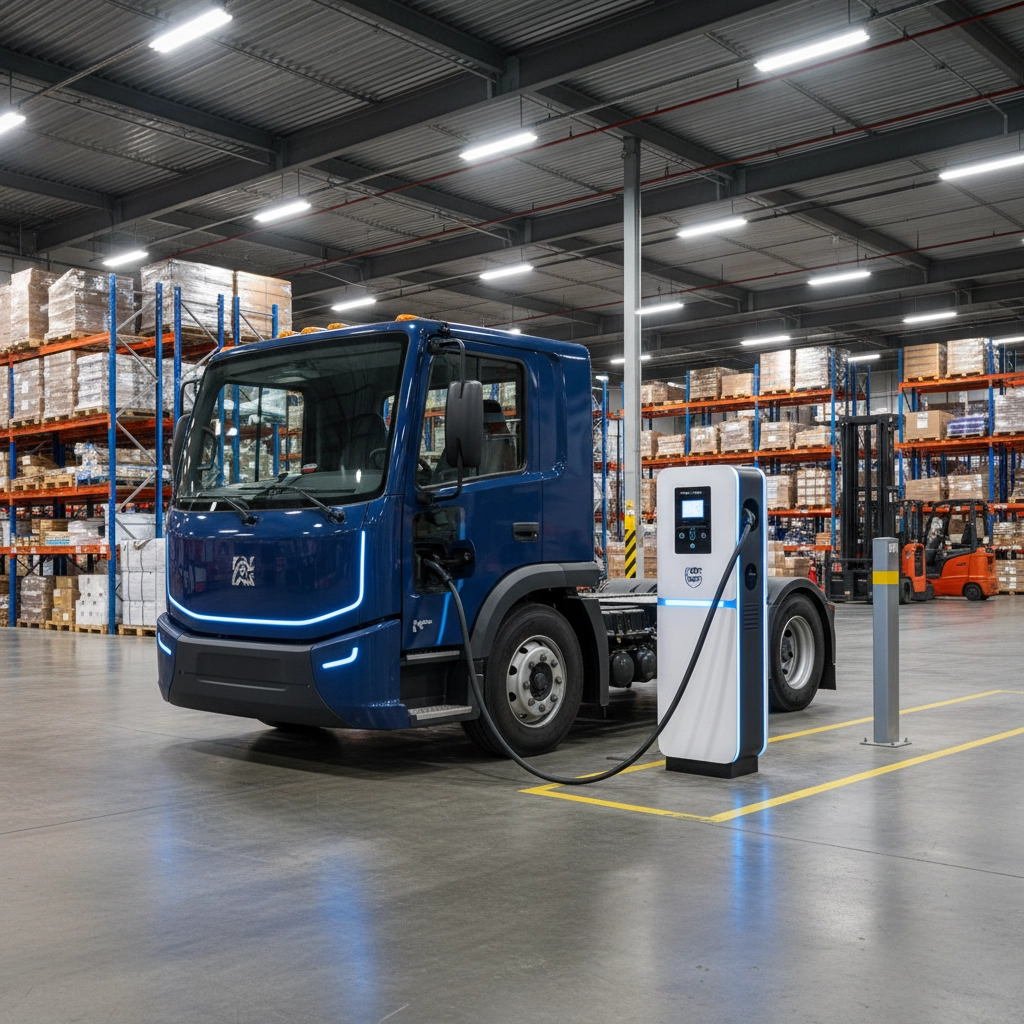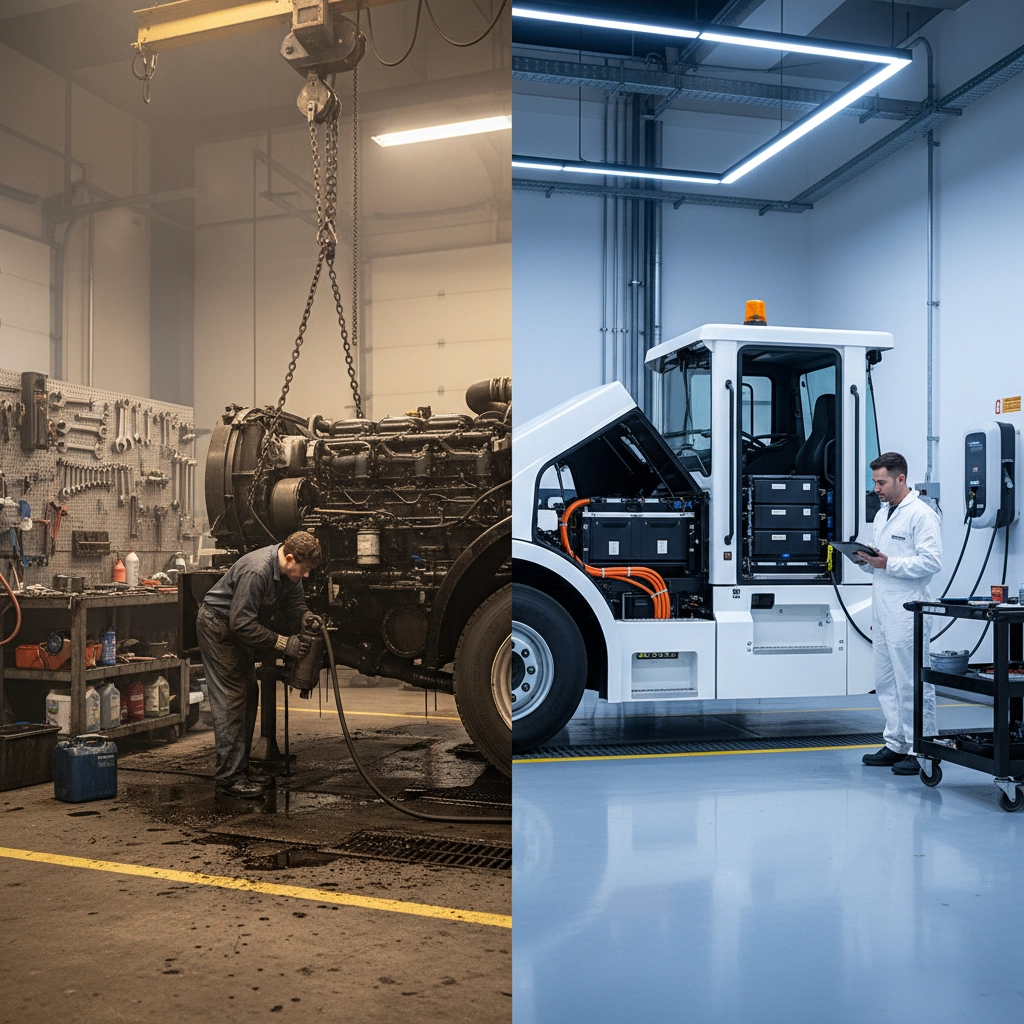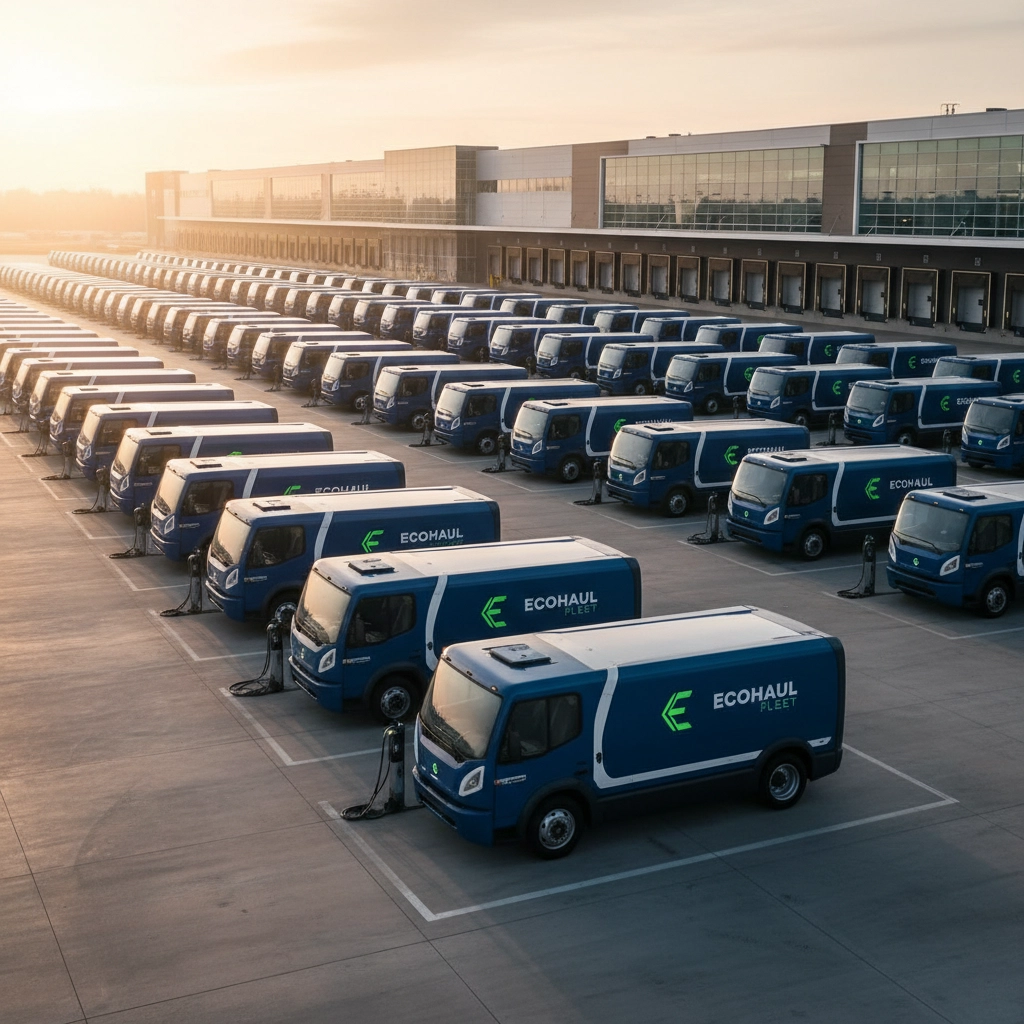Most trucking executives think electric vehicles are still years away from real commercial viability… until they see what's happening in yards across America right now.
While the headlines focus on Tesla's Semi delays and Nikola's struggles, a quieter revolution has been unfolding in logistics yards nationwide. Orange EV, the Kansas City-based pioneer in electric yard trucks, isn't just raising millions: they're proving that electric trucking's mainstream moment has already arrived, at least where it matters most: the daily grind of moving trailers around distribution centers.
The Numbers Don't Lie: Electric Is Already Here
What if everything you've been told about electric trucking timelines is wrong? The data from Orange EV's operations tells a story that challenges every skeptic who claims electric trucks aren't ready for prime time.
By 2025, Orange EV has deployed over 1,600 electric yard trucks to more than 300 fleets across the United States, Canada, and the Caribbean. These aren't pilot programs or demonstration projects: they're full-scale commercial operations that have collectively logged 10 million operating hours and nearly 27 million miles of real-world service.

The performance metrics are staggering. Orange EV's 340+ customers are achieving an average uptime of 97%, eliminating approximately 200,000 tons of CO₂ emissions while saving fleets an estimated $100 million in combined fuel and maintenance costs. When was the last time you heard about diesel yard trucks delivering savings like that?
The Perfect Storm: Why Yard Trucks Went Electric First
Picture this: a heavy-duty truck that operates in predictable patterns, returns to the same location every day, and runs for 8-16 hours with built-in charging opportunities. Now what if I told you this describes 90% of yard truck operations perfectly?
Unlike long-haul trucking, which faces range anxiety and charging infrastructure challenges, yard truck duty cycles align almost perfectly with current battery technology limitations. Most yard operations involve moving trailers within a 5-10 mile radius, with trucks returning to a central facility where charging infrastructure can be easily installed and managed.
The economics become even more compelling when you factor in the operational environment. Yard trucks typically idle extensively in diesel form, burning fuel while stationary and producing emissions in densely populated logistics corridors. Electric yard trucks eliminate this waste entirely, operating silently and producing zero local emissions.

Market Momentum: The Tipping Point Is Here
The data from ACT Research paints a picture of accelerating adoption that should make every fleet manager take notice. Market forecasts from December 2021 projected that battery-electric yard spotters could exceed 50% market share by 2024. We're not just approaching that threshold: we're likely already there in several key markets.
California leads the charge with the Hybrid and Zero-Emission Truck and Bus Voucher Incentive Project (HVIP), providing $95,000 to $120,000 in vouchers per electric yard truck. When incentives can cover 60-80% of the purchase price premium, the total cost of ownership equation shifts dramatically in favor of electric.
But incentives are just the beginning. Orange EV expects 500 to 1,000 new orders funded by the EPA's Clean Ports program beginning in Q1 2025, with the company's 2,400-truck annual production capacity positioning them to meet surging demand. This isn't speculative growth: it's contracted, funded orders with delivery timelines.
Infrastructure Reality Check: Charging Made Simple
One thing yard truck operators never tell you about going electric: the infrastructure challenge is actually the easiest part to solve. Unlike highway charging networks that require massive coordination and investment, yard charging infrastructure is straightforward, predictable, and entirely under fleet control.
Most yard operations can install Level 2 or DC fast charging stations at their existing facilities, often utilizing existing electrical infrastructure with minimal upgrades. The predictable nature of yard truck operations means fleets can optimize charging schedules around operational patterns, often charging during natural downtime or shift changes.

Fleet managers are discovering that this controlled charging environment actually provides operational advantages over diesel fueling. No more fuel deliveries, no storage concerns, no theft risk, and no price volatility from diesel markets.
The Diesel Disruption: Challenge Accepted
Here's where the debate gets interesting: are we witnessing the beginning of the end for diesel in yard applications, or just a niche adoption story?
The traditional arguments for diesel: range, refueling speed, infrastructure: simply don't apply to yard truck operations. Electric yard trucks charge overnight when they're not in use, eliminating any operational downtime for "refueling." They provide instant torque that actually outperforms diesel in the stop-and-go applications that define yard work.
Maintenance costs tell an even more compelling story. Electric drivetrains have approximately 20 moving parts compared to 2,000+ in a diesel engine. No oil changes, no exhaust system maintenance, no particulate filter cleaning, no diesel exhaust fluid refills. The maintenance schedule essentially becomes tires, brakes, and software updates.
But the disruption goes beyond economics. Regulatory pressure is mounting in key logistics markets, particularly in California and other states following California's lead. The Advanced Clean Fleets rule will require increasing percentages of zero-emission vehicles in fleet operations, making electric adoption not just economically attractive but legally mandatory.

The Mainstream Moment: What Comes Next
If you've ever felt like electric trucking was always five years away, you need to see what's happening in logistics yards today. The mainstream moment isn't coming: it's here, and it's spreading rapidly from yards to regional applications.
Orange EV's success has validated the market and attracted competition. Major truck manufacturers are now developing their own electric yard truck offerings, while established players are partnering or acquiring to compete. This competitive dynamic typically signals market maturity and mainstream acceptance.
The question isn't whether electric yard trucking will go mainstream: it already has. The question is how quickly this success model will scale to other applications and whether traditional diesel strongholds can adapt fast enough to remain relevant.
Looking Ahead: The Electric Advantage Accelerates
In 24 months, you could be looking at a transportation landscape where electric yard trucks are the default choice for new fleet purchases. The combination of proven performance, economic advantages, regulatory support, and infrastructure simplicity creates a compelling case that's difficult to argue against.
The Clean Ports funding represents just the beginning of federal support for electric trucking infrastructure. As battery technology continues improving and costs declining, the operational advantages of electric will only increase. Fleet managers who adopt early gain competitive advantages in operating costs, regulatory compliance, and environmental positioning.

The Verdict: Revolution in Motion
The evidence is overwhelming: electric yard trucking has crossed the mainstream adoption threshold and is accelerating rapidly. Orange EV's deployment success, combined with strong market projections, regulatory support, and improving economics, demonstrates that electric trucking's commercial viability isn't a future promise: it's today's reality in the applications that matter most.
The debate isn't whether electric trucks can work commercially: Orange EV and their customers have settled that question definitively. The debate is how quickly the rest of the trucking industry will recognize that the electric transition is happening faster than anyone predicted, starting from the ground up in America's logistics yards.
Ready to stay ahead of the electric trucking revolution? Visit GoTrucking.News for the latest industry insights, or contact our team at info@GoTrucking.News or +1 970-671-7787. Follow us on LinkedIn, Facebook, Instagram, and X for daily updates on the stories reshaping transportation.
#EVTrucking #ElectricVehicles #Sustainability #FleetManagement #Transportation #TruckingIndustry #Innovation #CleanTechnology #LogisticsNews


